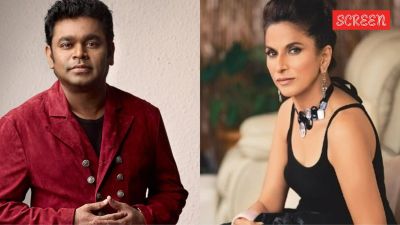Seriously funny
This political satirist started his career in 1982 by writing quatrains that were published in the phodni section of Chaitra and Loksatta newspapers.
Satirist Ramdas Phutane on why he presents pressing political and social commentary with a pinch of humour
This political satirist started his career in 1982 by writing quatrains that were published in the phodni section of Chaitra and Loksatta newspapers. The first two lines of the poem spoke of real events or any happening in the political arena,while the next two lines were satire, recalls Ramdas Phutane. For him,writing these satirical quatrains was equivalent to writing editorial pieces,in terms of the time consumed and the depth of commentary made. To mark the 25th anniversary of Phutane’s Marathi play,Bharat kadhi kadhi maza desh ahe (Sometimes,India is my country) ,which has been performed in Dubai,London,Doha,U.S.A,Canada,Singapore and other parts of the globe,Utkarash Prakasha released new editions of Phutane’s poetry at a function held at S.N Joshi Auditorium on May 8,2011.
The event was presided over by eminent writer,Yashwantrao Gadakh Patil,senior journalist,S.K Kulkarni,senior cartoonist,S.D Phadnis,senior poet Vithal Wagh,writer F.M.Shinde,popular comedian,Ashok Naygaonkar and Phutane. Cocktail,Safed Topi Lal Bati,and Changbal,all collections of Phutane’s sarcastic poetry, were released by energy minister,Sushilkumar Shinde at the event.
Drawing,poetry,films and politics have been Phutane’s passions. After a diploma in fine arts from Abhinav Kalavidyalaya in Pune,Phutane worked as an arts teacher in Marwadi Vidyalaya. Here is where he was inspired to enter the world of cinema with his first production,Saamna,a Marathi crime thriller which raked in three national awards. He has also directed movies like the 1978 movie Sarvasakshi,with Smita Patil in the lead role. His latest project is titled Suryanta,a film about the life of labourers in a sugar mill.
A demarcation should always be drawn between reality and humour,or else one never can guess what might offend whom and cause undesirable trouble. Society can be quite volatile and any thought could trigger an adverse reaction, says Phutane,adding,I have always applied unbiased political and social criticism in my poems. I strongly believe that running away from problems only creates more problems. It is better to first recognise the issue and then discuss it and come up with a fair and democratic solution. This is why I address serious social and political issues in my work in a lighter tone,one that does not hit you in the face but makes your mind linger on it.







